KID REPORTERS’ NOTEBOOK
UNICEF USA Helps During the Pandemic
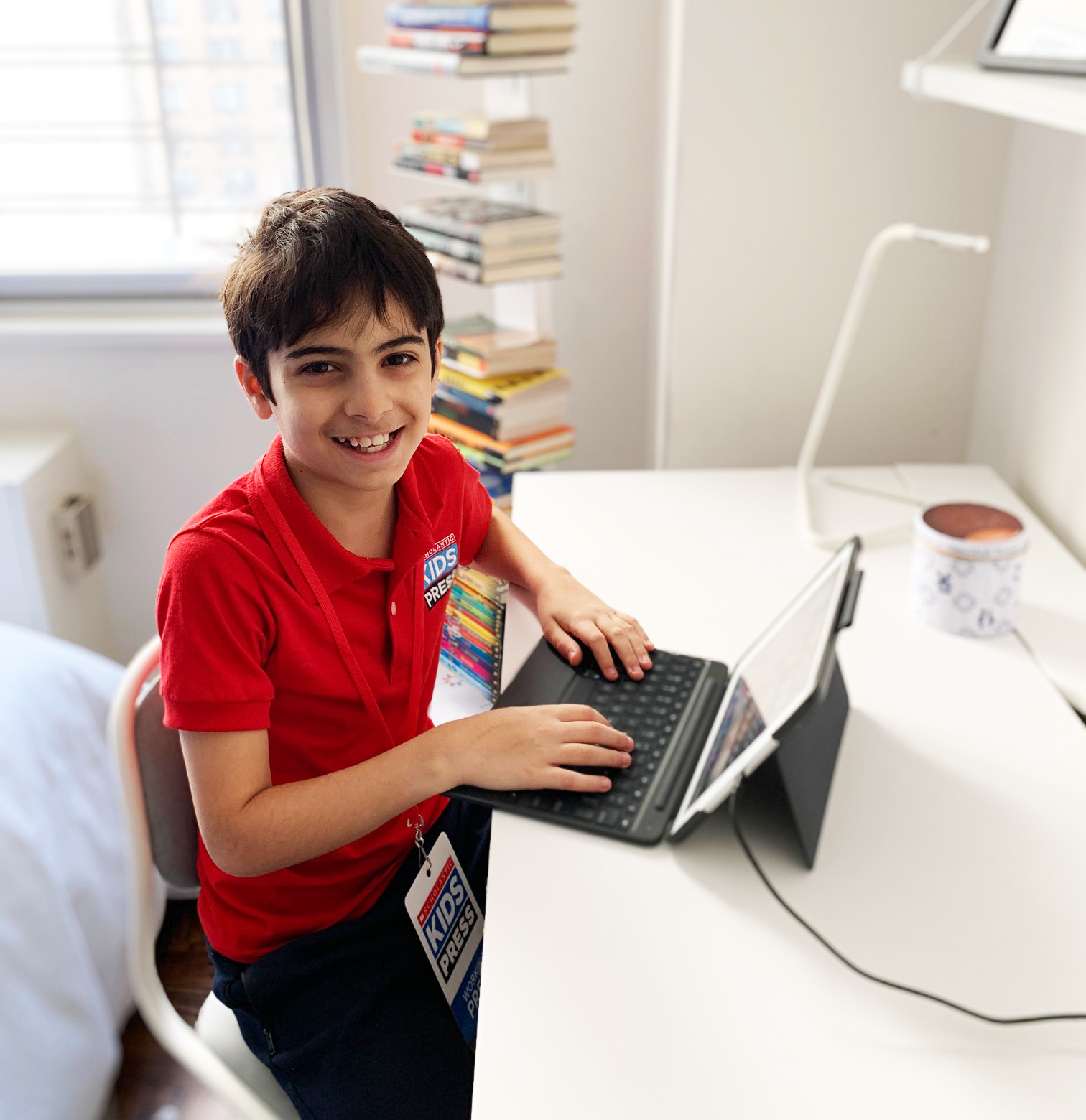
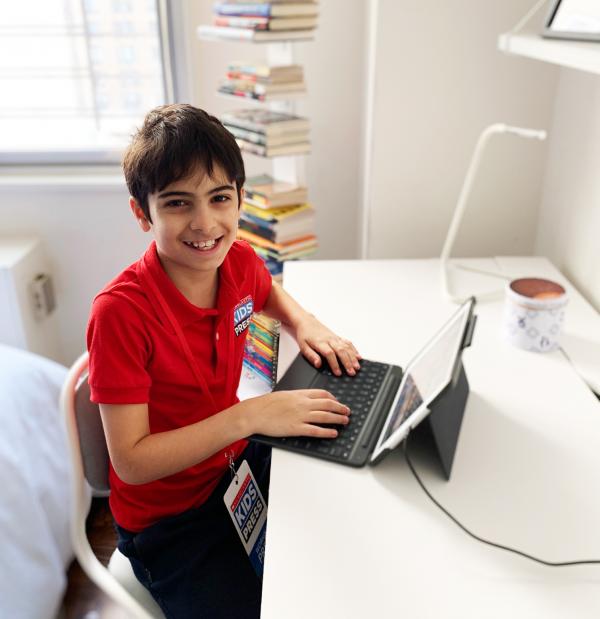
Siroos reports from home in New York City during the pandemic.
In late 2019, a new virus was detected in China. Since then, COVID-19, the disease caused by this “novel coronavirus,” has been reported in more than 200 countries. So far, the virus has sickened more than 1.5 million people and killed nearly 90,000.
COVID-19 attacks the respiratory system. Because it is a highly infectious disease, many urban areas, including New York City, where I live, are at particular risk. According to New York Governor Andrew Cuomo, “Up to 80% of the state’s more than 19.4 million residents could eventually be infected with the coronavirus.”
To take action, many cities and states have told their residents to stay home as much as possible. Doctors, nurses, first responders, supermarket clerks, and other essential workers are doing everything they can to keep people safe. Officials hope to slow the spread of the virus that way. So far, the plan seems to be working.
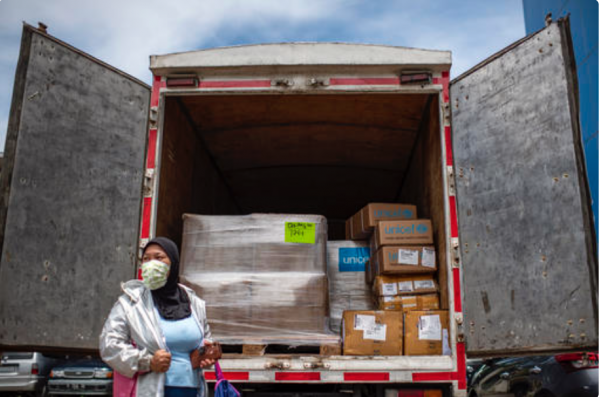
UNICEF USA is shipping gloves, surgical masks, respirators, and gowns to protect frontline workers.
EVERYONE HAS A ROLE
Government officials are not alone in their efforts to help curb the virus. UNICEF USA, a nonprofit organization funded, in part, by the United States, is helping children around the world who are in need.
“The pandemic is everywhere,” Brett Robinson, the organization’s chief financial and administrative officer, told me recently. “It’s all across the globe at this point. UNICEF has been working since the beginning of the outbreak.” To date, UNICEF has shipped more than 15 tons of supplies to help battle the virus and support healthcare workers.
Robinson said that UNICEF has always been equipped to quickly react to and battle emergencies, whether it is a natural disaster or, in this case, a global pandemic.
“UNICEF got its start as an emergency response to organizations when it first opened its doors after World War II,” Robinson said. He added that the nonprofit has the largest warehouse in the world. This helps workers distribute life-saving supplies across the globe as quickly as possible.
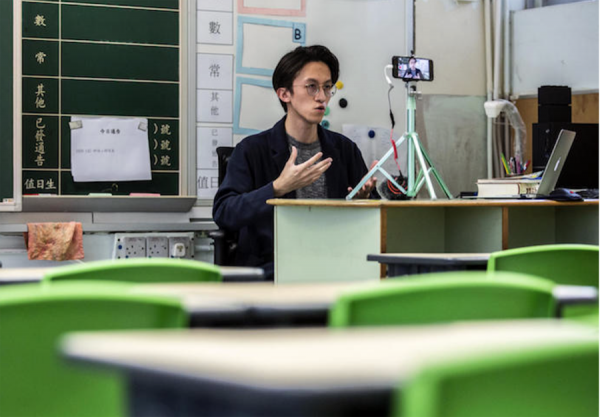
Wherever possible, teachers are conducting virtual classes during the pandemic, while their students remain at home.
EDUCATION INTERRUPTED
While most kids are asymptomatic, they are being hurt in other ways. Governments have been forced to close schools. Children who do not have access to online learning, or the necessary tools, are missing out on their education. Around the world, Robinson said, “there are more than 1.2 billion learners whose education is being disrupted right now.”
Those who do not have access to the Internet cannot read news and updates about COVID-19. Therefore, they might not be educated on the outbreak.
“We’re working with kids to help educate their parents,” Robinson said.
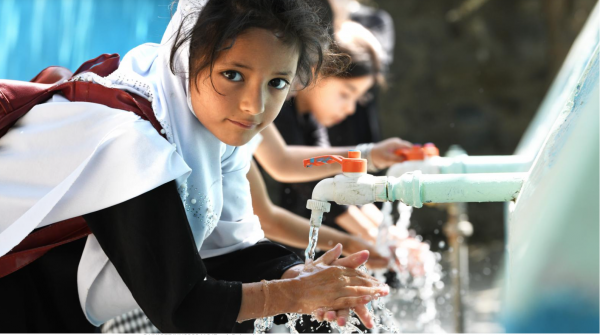
Washing your hands frequently is one of the best ways to curb the spread of COVID-19.
TIPS FOR STAYING HEALTHY
While our knowledge of COVID-19 is evolving, experts can agree on several things that people can do to stay safe and healthy. Here are tips:
- Wash your hands for 20 seconds. Get under your fingernails and between your fingers. Even wash your thumbs!
- Cough or sneeze into your elbow.
- Avoid touching your face and nose. These are the quickest ways for germs to enter your body.
- Practice social distancing. Experts recommend standing at least six feet away from others to “flatten the curve,” or slow the spread of the virus.
